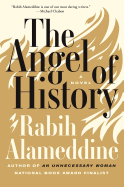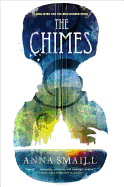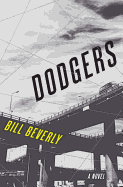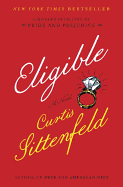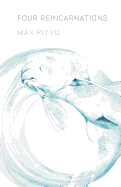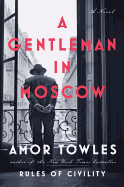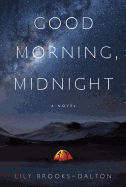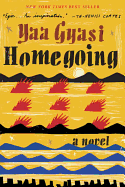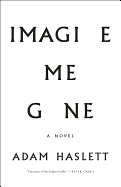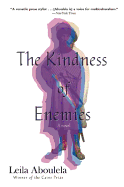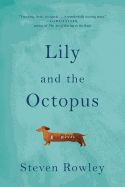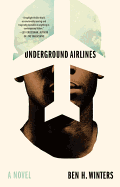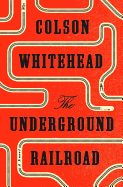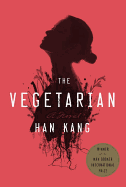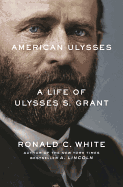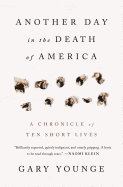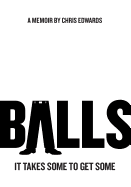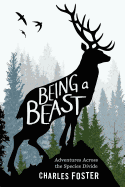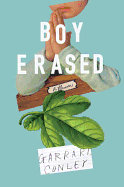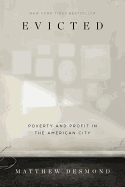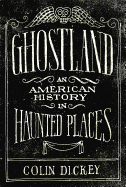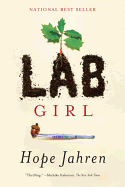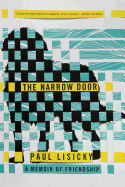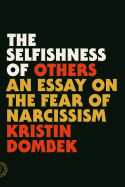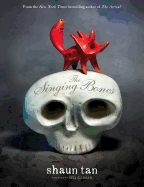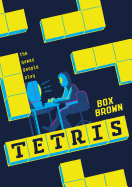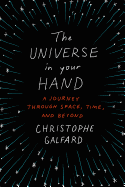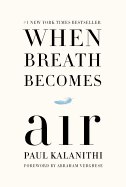Our 2016 Best Books of the Year
We compiled our Best Books of 2016 list surprisingly quickly this year, high-fived, and then... "But what about...?" The "what about" took longer, but no tears were shed and friendships are still intact. See our reviews below.
FICTION
The Angel of History by Rabih Alameddine (Atlantic Monthly Press)
The Chimes by Anna Smaill (Quercus)
Dodgers by Bill Beverly (Crown)
Eligible: A Modern Retelling of Pride and Prejudice by Curtis Sittenfeld (Random House)
Four Reincarnations: Poems by Max Ritvo (Milkweed Editions)
A Gentleman in Moscow by Amor Towles (Viking)
Good Morning, Midnight by Lily Brooks-Dalton (Random House)
Homegoing by Yaa Gyasi (Knopf)
Imagine Me Gone by Adam Haslett (Little, Brown)
The Kindness of Enemies by Leila Aboulela (Grove Press)
Lily and the Octopus by Steven Rowley (Simon & Schuster)
Smoke by Dan Vyleta (Doubleday)
Underground Airlines by Ben H. Winters (Mulholland Books)
The Underground Railroad by Colson Whitehead (Doubleday)
The Vegetarian by Han Kang, trans. by Deborah Smith (Hogarth)
NONFICTION
American Ulysses: A Life of Ulysses S. Grant by Ronald C. White (Random House)
Another Day in the Death of America: A Chronicle of Ten Short Lives by Gary Younge (Nation Books)
Balls: It Takes Some to Get Some by Chris Edwards (Greenleaf Book Group)
Being a Beast: Adventures Across the Species Divide by Charles Foster (Metropolitan/Holt)
Boy Erased: A Memoir by Garrard Conley (Riverhead Books)
Evicted: Poverty and Profit in the American City by Matthew Desmond (Crown)
Ghostland: An American History in Haunted Places by Colin Dickey (Viking)
Lab Girl by Hope Jahren (Knopf)
Mincemeat: The Education of an Italian Chef by Leonardo Lucarelli (Other Press)
The Narrow Door: A Memoir of Friendship by Paul Lisicky (Graywolf Press)
The Selfishness of Others: An Essay on the Fear of Narcissism by Kristin Dombek (FSG Originals)
The Singing Bones by Shaun Tan (Arthur A. Levine/Scholastic)
Tetris: The Games People Play by Box Brown (First Second)
The Universe in Your Hand: A Journey Through Space, Time, and Beyond by Christophe Galfard (Flatiron Books)
When Breath Becomes Air by Paul Kalanithi (Random House)
Don't miss our Best Children's Books of 2016 on December 13!
Our 2016 Best Books of the Year
Book Review
Fiction
The Angel of History
by Rabih Alameddine
Jacob, the aging Arab American poet in The Angel of History, has kept company with death for years, watching his every close friend wither away in the AIDS epidemic. Now Death is holding court with Satan and a host of saints in Jacob's San Francisco apartment, the poet's fiendish cat Behemoth their only audience, as Jacob flees in search of his sanity. With Jacob's story, Rabih Alameddine (An Unnecessary Woman) conjures an elegiac comedy with aplomb, his incantations rich with sincerity and irreverence.
The poet knows strife from the beginning: his Yemeni mother degraded in a brothel, stripped of his dignity by nuns at Catholic school, his heritage and sexuality stirring hatred in the hearts of Americans. These memories, prompted by Satan, flash through Jacob's mind against his will as he waits to see a psychiatrist.
As endearing as he is ribald, Jacob is the remnant of a generation lost to illness, shouting at oblivious young gay men, "How can you not know your history... how can you allow the world to forget us... the grand elision of queer history?"--even as he would like nothing more than to unlearn his own painful past. The Angel of History is outstanding, a novel that leaves a lasting mark. --Dave Wheeler, associate editor, Shelf Awareness
Atlantic Monthly Press,
$26,
hardcover, 304p., 9780802125767
The Chimes
by Anna Smaill
In a London torn apart by civil war, a monastic society called the Order lives in seclusion, writing music to be played on the Carillon, a giant organ crafted from pure palladium. The population outside the Order's walls hears two melodies: Onestory, in the morning, which tells of the war, and Chimes, in the evening, which erases all memories of the day. Citizens are left with only "bodymemory" in order to do their tasks, and vague "objectmemories." Attempts to recover the past are crimes of "blasphony."
Before she dies of "chimesickness," a condition the Order claims is an urban legend, Simon's mother urges him to go to London. Once there, he takes up with a band of youths who aim to collect bits of the legendary palladium weapon to sell. Lucien, their golden-haired, blind leader, thinks Simon may hold the key to stopping the Carillon forever, but the Order threatens both their mission and their budding romance.
Smaill's clever use of musical terms in her characters' speech adds to the immersive quality of the work, and her melodious prose lures the reader like a pied piper. With literary trappings, but a solidly speculative heart, The Chimes is a cantata of pure delight. --Jaclyn Fulwood, blogger at Infinite Reads
Quercus,
$26.99,
hardcover, 304p., 9781681445342
Dodgers
by Bill Beverly
Dodgers is a road trip novel, a coming-of-age novel, a crime novel--and more. Bill Beverly's debut, about four black kids from Compton confronting white Middle America for the first time, is as durable and expansive as the early-winter trees 15-year-old East notices along the Iowa-Wisconsin border: "rooted hard, grew up tall, muscular, their bare limbs grabbing all the air in the world." On a mission to the Midwest for their top dog, Fin, are four gang members: East, who has risen from drug house lookout to running a crew of younger kids; East's younger brother, Ty; fast-talker Michael, driving the van; and sitting shotgun, fat Walter, Fin's fixer and problem solver.
They make their way through the mountains and the plains, but things go south. Always on edge, Ty and East get crossways over stealing a car to get home. Walter puzzles out a way to score himself a plane ticket out of Des Moines. Alone, East makes his way to a small town in Ohio, where, exhausted with running, he settles into a job at a paintball range.
With the savvy of a prolific writer, Beverly plants a powerful conclusion on a powerful first novel. Dodgers is brilliant with no more than it needs--and no less. --Bruce Jacobs, founding partner, Watermark Books & Cafe, Wichita, Kan
Crown,
$26,
hardcover, 304p., 9781101903735
Eligible: A Modern Retelling of Pride and Prejudice
by Curtis Sittenfeld
What if Jane Austen set Pride and Prejudice in contemporary Cincinnati? In Eligible, Curtis Sittenfeld (Prep; American Wife) turns an iconic comedy of manners into a sly and entertaining social satire and story of loves lost and found.
The characters and plot are immediately recognizable, though the novel is wholly a Sittenfeld original. New Yorker Liz Bennet is a magazine writer who returns to Cincinnati to help care for her father after his heart attack. Jane, the eldest sister, is a yoga teacher undergoing in vitro fertilization treatments; Mary is pursuing her third online master's degree; Katie and Lydia spend all their time working out at a trendy gym. Mrs. Bennet engineers an invitation to a Fourth of July picnic so that the sisters can meet erstwhile reality television star Chip Bingley and his friend Fitzwilliam Darcy. Liz and Darcy naturally take an immediate dislike to each other, while Jane and Chip's instant mutual attraction is complicated by Jane's situation.
Eligible is so entertaining that one might easily miss its bigger themes--the futility of judging others based on appearances or social proprieties, their color, gender, circumstance or secret passion for bowling. Finding love means learning not to be judgmental--Darcy asks, when love comes, "Who cares what anyone else thinks?" --Jeanette Zwart, freelance writer and reviewer
Random House,
$28,
hardcover, 512p., 9781400068326
Four Reincarnations
by Max Ritvo
Published shortly after his death at age 25, Max Ritvo's collection of poetry, Four Reincarnations, is a sobering yet joyful examination of life and its unraveling. Ritvo battled cancer for nearly 10 years, and he breathes in the full tragedy and routine nature of death simultaneously, with an astounding ability to wring varied emotions, physical sensations and ambiguities out of the poems. They scramble the senses by painting sprightly, synesthetic landscapes: "The sound of burning vegetables/ is like a quiet, clean man folding sheets." Ritvo wrestles with the mutability of memory and the subjectivity of time. In "Afternoon," he visualizes his own death as both inevitable and already having happened. In "Plush Bunny," he pictures his small future stored in the same shoebox where he kept a stuffed animal he'd outgrown as a child.
As the poetry community grieves Ritvo's death and celebrates his work, one can only hope that his leaping imagination and clear-eyed psyche will reach widely into the living world. Ritvo dispenses bleak perspective and a generosity of spirit throughout Four Reincarnations, making this a collection to be savored and held close. As he writes in "The Watercolor Eulogy": "I know this isn't the heaven we wanted./ What ever is?" --Richael Best, bookseller, Elliott Bay Book Company, Seattle, Wash.
Milkweed Editions,
$22,
hardcover, 96p., 9781571314901
A Gentleman in Moscow
by Amor Towles
Amor Towles's first novel, Rules of Civility, won readers' hearts with its strong sense of time and place, fully realized characters and richly evocative voice. A Gentleman in Moscow repeats the feat and more.
In 1922, Count Alexander Ilyich Rostov appears before a Bolshevik tribunal, accused of "succumbing irrevocably to the corruptions of his class." He responds with quips, and is sentenced to house arrest in the luxury hotel where he has lived for the last four years. "Make no mistake: should you ever set foot outside of the Metropol again, you will be shot." This stylish and cultured protagonist has already lost his family and its estate. Now he's moved from his suite into a monastic room of a hundred square feet. To brighten Rostov's days, a fellow resident, "the young girl with the penchant for yellow," befriends him. The hotel opens into a surprising and rewarding world--though, by decree, limited--as Rostov makes the best of his circumstances.
Readers who enjoy a generous, absorbing story, vibrant characters and immersive time and place will fall in love with this saucy novel. And by the time A Gentleman in Moscow closes in 1954, those readers will be sorry to lose the new friend they've found in Rostov. --Julia Jenkins, librarian and blogger at pagesofjulia
Viking,
$27,
hardcover, 480p., 9780670026197
Good Morning, Midnight
by Lily Brooks-Dalton
Lily Brooks-Dalton's debut, Good Morning, Midnight, is a post-apocalyptic novel that barely mentions the apocalypse--"the last news from civilization, over a year ago, had been of war," but there's never mention of the specific calamity that seems to have overtaken the entire world. Brooks-Dalton instead focuses her attention on characters already at the fringes of human civilization, struggling to deal with the utter isolation of a mysteriously quiet earth.
The narrative toggles back and forth between Augustine, an elderly astronomer, alone in an Arctic observatory except for a quiet young girl named Iris, and the crew of the Aether, a spaceship making the return trip to Earth after completing a groundbreaking survey of Jupiter and its moons. Mission Specialist Sullivan, or "Sully," is one of the astronauts on board, consumed by confusion and fear after Mission Control abruptly goes silent. Brooks-Dalton weaves these two seemingly disparate stories together, drawing her protagonists closer to each other by ingenious narrative and thematic means, deriving more tension from existential dread than with equipment failures.
Before the calamity, Augustine and Sully preferred to focus on the stars rather than relationships, a course that left both of them with plenty of regrets. Here, at the end of the world, Brooks-Dalton turns her protagonists' gazes inward. --Hank Stephenson, bookseller, Flyleaf Books
Random House,
$26,
hardcover, 272p., 9780812998894
Homegoing
by Yaa Gyasi
With her first novel, Yaa Gyasi crafts a captivating and potent narrative. Homegoing alternates between the parallel lineages of Ghanaian half-sisters Effia and Esi. Born in an 18th-century Fante village, Effia never knows her mother, a slave to the girl's father, who flees to the nearby Asante village, where she later gives birth to Esi. As the girls grow up, Effia is given in marriage to a British slave trader; Esi, captured and raped by slavers, bears children destined for continued abuse--bought, sold and shipped to the New World.
Gyasi portrays the effects of personal and political decisions unto the seventh generation as years pass and family ties bind the sisters' offspring. Their hopes, regrets and secrets are handed down as each of her characters faces quandaries of submission and resistance to social systems of oppression. Their narratives are rich with poignant details about the lingering colonial influence of Christian missionaries in Ghana or the infuriating Jim Crow laws in the U.S.
Rarely does a grand, sweeping epic plumb interior lives so thoroughly. Yaa Gyasi's Homegoing is a marvel. It reminds readers that, every step of the way, the African diaspora has been shaped by individuals at their best and at their worst, vulnerable human beings craving the safety of a place to call home. --Dave Wheeler, associate editor, Shelf Awareness
Knopf,
$26.95,
hardcover, 320p., 9781101947135
Imagine Me Gone
by Adam Haslett
In Imagine Me Gone, his second novel, Adam Haslett (Union Atlantic) takes another giant step toward fulfilling the promise of his earlier work with a story about mental illness and the devastating effect it can have on an utterly ordinary family.
Narrated in alternating first-person sections, Imagine Me Gone spans roughly four decades in the life of this family headed by John, the depressive father from England, and Margaret, his American wife. Their oldest son, Michael, seemingly inherits his father's condition, layered over with anxiety. After John dies early in the novel, the remainder of the story focuses on the efforts of Margaret, and Michael's siblings, Celia and Alec, to save Michael from catastrophe, while grappling with their own lives and loves.
Haslett has a keen eye for the civilized but unmistakable conflict that lies at the root of this family's life. They struggle, not out of any shortage of love for each other, but instead because of an inability, despite their best efforts, to express that love in effective ways.
Through his restrained, yet expressive prose, Adam Haslett gently reminds us of the infinite scope the intimate drama of family life offers to a novelist of his imposing talent. --Harvey Freedenberg, attorney and freelance reviewer
Little, Brown,
$26,
hardcover, 368p., 9780316261357
The Kindness of Enemies
by Leila Aboulela
In her marvelous and nuanced fourth novel, The Kindness of Enemies, Leila Aboulela (Lyrics Alley) uses historic conflicts to illustrate Islamophobia's pernicious legacy and its ominous reverberations in the present day. Natasha Wilson is a scholar teaching in Scotland in 2010; her work focuses on the Sufi leader Imam Shamil, who spearheaded the resistance against Russians invading the Caucasus in the 19th century. Natasha's most promising student, Oz, happens to have descended from Shamil, and the two bond over the significance of Shamil's rebellion.
Aboulela braids 2010 Scotland together with parallel dramas playing out in the disputed Eurasian highlands of the 1850s. Captured as a boy by Russian forces, Shamil's son Jamaleldin is raised in the opulent courts of St. Petersburg as the godson of the Tsar. Desperate for his son's return, Shamil orders the capture of Princess Anna of Georgia to prompt an exchange of hostages. Proud though they are, Anna and Jamaleldin will not walk away from captivity unchanged.
With an impeccable balance of internal and external conflicts, The Kindness of Enemies ruminates over clashing political allegiances, rival religious devotions, alienation within families and competing identities on a personal level: a riveting story of epic proportions. --Dave Wheeler, associate editor, Shelf Awareness
Grove Press,
$25,
hardcover, 320p., 9780802124487
Lily and the Octopus
by Steven Rowley
Steven Rowley's first novel, Lily and the Octopus, is a startling, scintillating experience, both funny and emotionally wrenching: a story that shatters all expectations.
Ted Flask has a contented home life with an aging dachshund named Lily. They are comfortable in their routines: pizza on Sundays, Monopoly on Fridays, talking about cute boys on Thursdays. They have inside jokes and holiday traditions. Lily holds up her end of conversations, although as a dog she is of course distractible, and her memory can be short.
There is a new addition to their household, an octopus, and he has a death grip on Lily's head. She begins to have seizures. She weakens. As the octopus's tentacles tighten around Lily's precious small head, Ted realizes he has a fight on his hands.
As Ted battles the octopus and tries to sustain his darling, he ends up examining every aspect of his own life, his own shortcomings and the strengths he discovers in himself, almost by surprise. His journey, then, is not only about a man and his dog but about breaking out of life's stalemates.
Imaginative, ever-astonishing, suspenseful and wise, Rowley's surprising novel is thoroughly gut-wrenching, but well worth the pain. With a winning dog at its robust heart, no reader could ask for more. --Julia Jenkins, librarian and blogger at pagesofjulia
Simon & Schuster,
$25.99,
hardcover, 320p., 9781501126222
Smoke
by Dan Vyleta
Smoke is set in England, "a century ago, give or take"--a familiar yet strange land where, when the wicked lie or sin in thought or deed, they release Smoke: thin white wisps, or oily black and oozing, or yellow or green, depending on the crime. They might smoke through their mouths, or the pores of their skin. It is a remarkably convenient way to judge people. Or so it seems.
With this premise, Dan Vyleta (The Crooked Maid) introduces a world of action, intrigue and challenge. Smoke is told from many perspectives, eventually spanning social classes to include religious fanatics, compassionless scientists, imitators of virtue, goodhearted working-class misfits--and, possibly, the truly evil. Readers and characters are confronted with revelation after revelation, eventually including the very nature and meaning of Smoke. At a little over 400 pages, Smoke begs for a single-sitting read, such is the momentum of the plot. On the other hand, its world-building is so massive and engrossing that it seems much larger than a mere novel.
For moralists; for those pondering the difference between good and evil; and, especially, for readers who appreciate a wild and large-scale story of action, adventure, risk and destiny: Smoke will entertain and provoke. Readers will be left wanting more. --Julia Jenkins, librarian and blogger at pagesofjulia
Doubleday,
$27.95,
hardcover, 448p., 9780385540162
Underground Airlines
by Ben H. Winters
After successfully fusing the detective genre with apocalyptic speculative fiction in his excellent Last Policeman trilogy, Ben H. Winters has created another masterly genre-bender with his novel Underground Airlines. Set in a United States where the Civil War never happened--Abraham Lincoln was assassinated soon after his election, and to avert war, the government passed a series of compromises allowing slavery to continue in slave-holding states. In the present day, the states have been whittled down to the Hard Four, which practice a perversely "modernized" form of industrial-scale slavery.
Victor, the protagonist, knows the horrors of the Hard Four from personal experience. After escaping them, he was captured by U.S. marshalls and forced to become a bounty hunter tracking down fellow escapees. Embittered by the choices he's made to stay free, he's embarking yet again on the "devil's work," but this case turns out to be far more complex than Victor would have ever predicted.
Underground Airlines is an undeniably entertaining novel. Winters's pacing is all-around excellent. The parallels with modern-day racism in the United States are difficult to miss. Winters makes no compromises with Underground Airlines; he has improbably created a novel that calls to mind Raymond Chandler and Ta-Nehisi Coates in equal measure. --Hank Stephenson, bookseller, Flyleaf Books
Mulholland Books,
$26,
hardcover, 336p., 9780316261241
The Underground Railroad
by Colson Whitehead
The Underground Railroad tells the story of Cora, a slave who makes a break for freedom early in the novel. Fleeing the horrors of the plantation and an almost demonically persistent slavecatcher by the name of Ridgeway, Cora is aided on multiple occasions by the Underground Railroad.
Instead of the metaphorical organization from history, Colson Whitehead's Underground Railroad is an immense network of actual underground railways taking fugitive slaves from station to station. Whitehead writes: "Two steel rails ran the visible length of the tunnel, pinned by wooden cross-ties into the dirt. The steel ran south and north presumably, springing from some inconceivable source and shooting toward a miraculous terminus." Whitehead isn't interested in the how and why of the physical railroad so much as the hopes, dreams, fears and simple imagination made manifest--it's not quite magical realism, but there are points of similarity.
This audacious fudging of history continues throughout the book and gets increasingly phantasmagorical as the story progresses. Cora's path is haphazard, strange, wandering from one temporary patch of safety to another. The wildest, most thrillingly implausible part of The Underground Railroad is not the many-miles-long underground tunnels, but the persistence of hope in the face of senseless, persistent horror. --Hank Stephenson, bookseller, Flyleaf Books
Doubleday,
$26.95,
hardcover, 320p., 9780385537032
The Vegetarian
by Han Kang, trans. by Deborah Smith
Yeong-hye was an ordinary woman--a trait her husband appreciated--until she made the shocking decision to become a vegetarian. In South Korea, this is unusual and socially scandalous; her family reacts by trying to force her to eat meat. "I had a dream," is all she says in explanation. Han Kang's novel The Vegetarian recounts Yeong-hye's choice and its consequences.
Three sections tell the story from different perspectives: Yeong-hye's disgusted and frustrated husband; her brother-in-law, a video artist whose work and every thought become fixated on Yeong-hye and her "vegetal" nature; and finally, her older sister. Their relationships to the protagonist reveal more of her personality, but they cannot understand her. Vegetarianism is only one stage in Yeong-hye's extreme plan for metamorphosis, as it turns out. As her story unfolds, this single decision brings increasing disgrace, violence and subversion, and her limited control over her own life diminishes.
This is a dreamy story with depth and mystery, translated with nuance and a tone of growing wonderment. Yeong-hye is a confounding and almost mystical character, never seen through her own point of view. In the end, The Vegetarian asks questions about mental illness and the significance of personal choice. Yeong-hye's story is disquieting, thought-provoking and precisely formed. --Julia Jenkins, librarian and blogger at pagesofjulia
Hogarth,
$21,
hardcover, 192p., 9780553448184
Nonfiction
American Ulysses: A Life of Ulysses S. Grant
by Ronald C. White
Ulysses S. Grant's reputation nosedived in the 20th century, but a new generation has begun to rehabilitate his legacy. Historian Ronald C. White (A. Lincoln) combines exemplary scholarship and storytelling in American Ulysses, a monumental and well-illustrated re-evaluation of an extraordinary character, life and career.
White begins with the strong influence on Grant of the Puritan "priority of the community over the individual." He was a sensitive, introverted child, patient, hardworking, studious and athletic. He hoped to teach mathematics, but ended up in the Mexican-American War, where he became default commander of a company mid-battle and won his first victory. He was promoted to captain, but after several failed business ventures and years of separation from his beloved wife, Grant resigned his commission and went home broke. The outbreak of the Civil War made him re-enlist as a clerk, and he rose to become one of the greatest generals in U.S. history. After the war, he reluctantly accepted an appointment as Secretary of War and then was "forced into" running for president, refusing to campaign because "he believed it unseemly to talk about himself."
Through detailed objective evidence, White explores how Grant's character laid the foundation for both his achievements and his humiliations. --Sara Catterall
Random House,
$35,
hardcover, 864p., 9781400069026
Another Day in the Death of America: A Chronicle of Ten Short Lives
by Gary Younge
Born in Great Britain to Barbadian parents, Guardian journalist Gary Younge (The Speech) has lived in the United States for more than a decade and struggles to understand the nation's gun culture. His confusion intensified when he discovered the increased likelihood of gun violence affecting black children like his own. Another Day in the Death of America is a result of his interest in the disturbingly neglected fact that seven children, on average, die each day in the U.S. because of gun violence.
Younge researches the gun deaths of children that he is able to identify--10 total--during the arbitrarily chosen 24 hours from 3:57 a.m. on November 23, 2013, to 3:30 a.m. on November 24, 2013. Through public documents, news reports and interviews with friends and family members, he tells the stories of these victims, aged nine to 19, who perished without national attention.
The gripping power of Another Day in the Death of America radiates from Younge's compassion and thoroughness. The book is steeped in relevant statistics and background, but never loses sight of the human element. Heartbreaking, compelling and inspiring, this is a strong voice for the victims of many devastatingly silent, daily tragedies. --Jen Forbus, freelancer
Nation Books,
$25.99,
hardcover, 304p., 9781568589756
Balls: It Takes Some to Get Some
by Chris Edwards
In this bold memoir about gender dysphoria and gender confirmation surgery, Chris Edwards explains, "That feeling of finally being complete--of being who you really are--trumps everything." It ultimately takes Edwards more than three decades and 28 surgeries to realize his consummate body, but in 1974, at five years old, he already knows his true gender. It's everyone around him who seems confused. When Edwards, through the help of an amazing counselor, is finally able to share his battle with his family and friends, he finds support, compassion and encouragement. While everyone doesn't always understand, he patiently educates them--and his readers.
Balls is a stunning self-portrait of an exceptional man, an inspiration for others who may be a gender not recognized by those around them. With eloquence and grace, as well as sharp wit and brutal honesty, Edwards explains to his audience, "The key to understanding gender dysphoria is realizing that sexual orientation and gender identity are two totally different and completely separate things." From opening himself up to his family, friends and colleagues to sharing the intimate details of his story with the world, Chris Edwards has no shortage of moxie. Smart, funny, genuine and uplifting, Balls is sure to win a lot of hearts. --Jen Forbus of Jen's Book Thoughts
Greenleaf,
$24.95,
hardcover, 264p., 9781626343252
Being a Beast: Adventures Across the Species Divide
by Charles Foster
The premise of Being a Beast is as misleading as it is wacky: a man tries to live as a badger, then as an otter, a fox, a deer and a swift, in order to understand what it's like to experience the world as a wild animal. But beneath the surface, this series of philosophical essays represents nature writing of the highest order: probing, intellectual, alert, funny and astonishing.
Charles Foster (The Sacred Journey) is an Oxford fellow and self-described "writer, traveller, veterinarian and barrister." His tone is blithe, his style loose and poetic. He doesn't write sentences so much as create little idea nests: "Learn old tunes; eat food that comes from where you are. Sit in the corner of a field hearing. Put in wax earplugs, close your eyes, and smell. Sniff everything, wherever you are: turn on those olfactory centers. Say, with Saint Francis, 'Hello, Brother Ox,' and mean it."
He's interested in what it's like to be a badger and an otter, yes, but as he burrows, swoops, sniffs and chews his way through a cross-section of our kingdom, Foster writes like a man alive, intimately concerned with the nature of things. --Zak Nelson, writer and editorial consultant
Metropolitan/Holt,
$28,
hardcover, 256p., 9781627796330
Boy Erased: A Memoir
by Garrard Conley
Garrard Conley's haunting and introspective memoir, Boy Erased, recounts his 2004 freshman year in college--the year his deeply religious Arkansan parents discovered he was gay and sent him to be evaluated at Love in Action (LIA), a fundamentalist Christian ministry that adapted Alcoholics Anonymous's 12-step program for gay conversion therapy.
The only son of evangelical Missionary Baptist parents, Conley was often required to help his ordained father in his ministering duties. Conley's entire life had been shaped by Bible verses and End Times philosophy. So, when he's outed, he readily agrees to undergo the therapy.
Boy Erased offers an unusual firsthand perspective of gay conversion therapy: Conley is so steeped in his religious upbringing that he doesn't initially rebel against LIA's program. During his evaluation period (where he has to keep a Moral Inventory of sinful transgressions), he eventually realizes, "In the process of purification, you risked erasing every minor detail you'd ever cared about."
Conley is a vivid, compassionate and compelling writer who uses arresting imagery. The portraits of his parents show them as sheltered and scared, but also loving and supportive. Boy Erased is a vulnerable coming-of-age tale that will educate and move readers. --Kevin Howell, independent reviewer and marketing consultant
Riverhead,
$27,
hardcover, 352p., 9781594633010
Evicted: Poverty & Profit in the American City
by Matthew Desmond
Matthew Desmond, a Harvard sociologist, spent years embedded in a trailer park and then Milwaukee's North Side to research Evicted, where he came to know the eight families whose stories feature prominently in this study of American poverty.
Evicted is a thorough, and infuriating, picture of the role that housing plays in the cycle of poverty ("one of the least studied processes affecting the lives of poor families"): how much money low-income families spend on rent; the many ways that these families can come to be evicted; the ongoing impact of evictions in obtaining affordable housing in the future. Where appropriate, Desmond also explores how these issues interact: how race and gender, for example, impact the landlord-tenant relationship, and how parenthood increases one's likelihood of eviction.
Evicted moves elegantly between the micro and the macro. The stories of the eight families in Milwaukee are engaging and heartbreaking, and provide human context for the study of larger economic forces at play in the United States. Desmond's writing is touching and heartfelt, and a call for readers to acknowledge the problem that exists and work to find a solution for it. --Kerry McHugh, blogger at Entomology of a Bookworm
Crown,
$28,
hardcover, 432p., 9780553447439
Ghostland: An American History in Haunted Places
by Colin Dickey
In Ghostland: An American History in Haunted Places, Colin Dickey (Cranioklepty) travels the country to investigate possessed locales and gain insight into their spooky legends. But rather than assembling a mere compendium of the nation's scariest anecdotes of the supernatural, he takes a savvy turn into the sordid annals of American history and discovers truths far more unsettling than phantoms in the night.
Salem, Mass., thrives on tourism dedicated to its infamous 17th-century witch trials, a legacy Nathaniel Hawthorne borrowed for his novel The House of the Seven Gables. While religious scapegoating makes for tragic history, and magical curses make for great fiction, Dickey analyzes how property disputes contributed to many of the accused being sent to the gallows. He considers the squalor and abuse rampant in an Ohio asylum that allowed one patient to disappear into an abandoned wing during the winter and die of exposure--leaving a stain, "a ghostly outline in chalky white," likely the result of her body fat decomposing.
Dickey artfully demystifies overgrown frights, revealing the injustices and atrocities that gave birth to them. While truth may be stranger than fiction, Ghostland's greatest chills come from traversing the eerie landscape in between. --Dave Wheeler, associate editor, Shelf Awareness
Viking,
$27,
hardcover, 336p., 9781101980194
Lab Girl
by Hope Jahren
With good humor, plenty of science, scattered literary allusions and the occasional sarcastic zinger, Hope Jahren's Lab Girl is the sublime memoir of a plant research scientist and her struggles to find professional success, love and family.
With only a start-up financial commitment from Georgia Tech, Jahren and Bill, her lab tech sidekick, cobbled together a science lab out of flea market odds and ends. Bill lived in his van as Jahren feverishly applied for federal research grants. The rest, as they say, is history: three Fulbright awards, numerous publications, several outstanding scientist and teacher awards, a world-class lab and tenured professorship at the University of Hawaii, and a devoted mathematician husband and baseball-crazed son--with the eccentric, foul-mouthed, patient, chain-smoking and ingenious Bill at her side all the way.
Jahren emerges as a smart, practical, good-hearted woman who loves her work and also finds joy in her husband, young son and best friend, Bill. She eventually realizes that after years of "trying to make my life into something... all the truly valuable pieces fall from the sky undeserved. I used to pray to be made stronger; now I pray to be made grateful." --Bruce Jacobs, founding partner, Watermark Books & Cafe, Wichita, Kan.
Knopf,
$26.95,
hardcover, 304p., 9781101874936
Mincemeat: The Education of an Italian Chef
by Leonardo Lucarelli, trans. by Lorena Rossi Gori, Danielle Rossi
In Mincemeat: The Education of an Italian Chef, debut author and chef Leonardo Lucarelli chronicles a haphazard career in professional kitchens throughout Italy, working long hours amid inept sous chefs, illegal dishwashers and unscrupulous owners, with lots of sex and prodigious amounts of drugs. It's not the first version of this story we've seen, but it's one of the most personal and heartfelt.
Born to hippie parents in India and raised in Umbria, Lucarelli went to college to study anthropology and started throwing dinner parties for friends. He lucked into his first real restaurant job with a chef who didn't examine his résumé too closely. From then on, Lucarelli careened from one failing restaurant to another, gradually honing his skills and his tolerance for drugs and alcohol.
His writing is genial and breathless; he veers between ardent stoicism and comic indignation. The people he writes about are what give the memoir shape and make it--and his career--meaningful. He lovingly describes friendships with a care and attention usually reserved for lovers. That's what makes Mincemeat sing. Lucarelli's sensitivity and sincerity sets him apart, and will keep him in good stead if he continues to write. --Zak Nelson
Other Press,
$25.95,
hardcover, 320p., 9781590517918
The Narrow Door: A Memoir of Friendship
by Paul Lisicky
The Narrow Door is a striking memoir of love and loss by Paul Lisicky (Lawnboy). At its center are the life and death of Denise, Paul's longtime best friend; in parallel, Paul and his husband slowly pull apart. The ups and downs of these two relationships define the story Lisicky tells, but they also give him space to muse on larger questions: the craft of writing, competition among writers, the meaning of love and events in the larger world.
Paul mets Denise in the early 1980s, when they were both teaching assistants at Rutgers. They became fast friends, talking on the phone for hours, sharing the pain and joy of writing. Denise becomes a published novelist first, but Paul's later success threatens her. Paul's husband, identified simply as M, is a successful poet and has his own, weaker friendship with Denise. He supports Paul when she dies, but soon after, the couple begins their drift apart.
The Narrow Door employs a disordered chronology. It is an artistic work, poetic and layered and carefully structured. In an austere mood, Lisicky avoids the idea of comfort for its own sake but asks, "Couldn't there be some rigor to comfort?" The Narrow Door answers with both, in a compelling package. --Julia Jenkins, librarian and blogger at pagesofjulia
Graywolf Press,
$16,
paperback, 192p., 9781555977283
The Selfishness of Others: An Essay on the Fear of Narcissism
by Kristin Dombek
In The Selfishness of Others, essayist Kristin Dombek (her work appeared in The Best American Essays 2014) looks at the common belief in "a kind of selfishness we increasingly fear, judging by the rising chorus that calls the young and the bad boyfriends by the same name as the murderers: narcissist." Popular self-help literature describes the narcissist as an empty shell, a fake that only pretends to have emotions and selfhood. But then, she says, who is doing the pretending? How is it that these descriptions of pathological narcissism so perfectly describe exes and bad bosses, mass murderers and perhaps your mom? And "why do these descriptions also (in moments you quietly bury deep inside you) remind you, sometimes, of an entirely different person--that is, you?"
Reflecting on her personal experiences, Internet forums and the works of psychologists and philosophers, Dombek considers current and past debates about narcissism in a conversational, humorous and sometimes profane style. "Maybe it's not something to run from, but... something to turn toward, the selfishness of others, a kind of gift: the thing that can empty the future of your fears from the past." --Sara Catterall
FSG Originals,
$13,
paperback, 160p., 9780865478237
The Singing Bones
by Shaun Tan, foreword by Neil Gaiman
The folktales and fairy tales of the Brothers Grimm "have never been illustrated like this," writes Neil Gaiman in his lyrical introduction to The Singing Bones by Shaun Tan (The Bird King; Tales from Outer Suburbia). By "like this," Gaiman means with dramatically lit photographs of Tan's exquisite, primal sculptures that "suggest" more than "describe." "The Frog King," "Hansel and Gretel," "Rapunzel," "The Singing Bone," "Jorinda and Joringel" and 70 more are represented by very short excerpts, with context-providing plot summaries in the back, suggestions for further reading, and an essay on the Brothers Grimm by expert Jack Zipes.
Tan appreciates the ambiguity of fairy tales and how they are "strung between the real and unreal, the literal and impossible, convincing and absurd." All of this shines through Tan's powerful, enigmatic papier-mâché and clay sculptures he describes as orange-like in size and "much inspired by Inuit stone carvings and pre-Columbian clay figurines." A marvel, a masterpiece, a must. --Karin Snelson, children's & YA editor, Shelf Awareness
Arthur A. Levine/Scholastic,
$24.99,
hardcover, 192p., 9780545946124
Tetris: The Games People Play
by Box Brown
Box Brown (Andre the Giant: Life and Legend) turns his attention to the complicated history of one of the greatest video games ever made in Tetris: The Games People Play. Brown's cartoonish art style--distinctive in its eye-catching black-and-yellow color palette--allows him to break down into accessible pieces thorny topics such as game theory, the psychology of gaming, copyright law and the byzantine bureaucracy of the Soviet Union, Tetris's home country.
Brown starts with Alexey Pajitnov, a computer scientist at the Moscow Academy of Science who created Tetris in his spare time. In explaining Tetris's appeal, Brown's choice of a visual medium is very handy. According to Brown, "Alexey had tapped into something in the brain. The nature of the gameplay causes the player's pre-frontal cortex to be stimulated constantly. People remained motivated to continue to play on and on." The game's addictiveness, in other words, is founded in neurochemistry: tasks create tension in the brain, tension that releases once the task is finished.
Tetris is an ambitious work of history in graphic novel form. It approaches the world-conquering game as a dopamine delivery system, a lucrative product and, above all else, an artistic triumph. --Hank Stephenson, bookseller, Flyleaf Books
First Second,
$19.99,
paperback, 256p., 9781626723153
The Universe in Your Hand: A Journey Through Space, Time, and Beyond
by Christophe Galfard
What are gluons and how are they related to quarks? Why can't we see what the universe looked like before it was 380,000 years old? What exactly is space-time and why is "empty" space anything but? If these questions make your head hurt and heart race, have no fear: Christophe Galfard, a theoretical physicist from Cambridge University and former graduate student under Stephen Hawking comes to the rescue with The Universe in Your Hand: A Journey Through Space, Time, and Beyond.
The Universe in Your Hand is a series of thought experiments, much like the kind Albert Einstein used to imagine the behavior of objects moving near the speed of light. In simple, conversational and often humorous prose, Galfard takes readers from an imagined vacation on a tropical beach and whisks them up into the heavens, all the way to the edge of the observable universe. The Universe in Your Hand is the ultimate layperson's guide to everything, at least as early 21st-century physics understands it, and even a bit beyond--the end of the book deals with the theoretical boundaries of modern knowledge, including string theory and dark matter/energy. It is a masterpiece of popular science writing. --Tobias Mutter, freelance reviewer
Flatiron Books,
$27.99,
hardcover, 400p., 9781250069528
When Breath Becomes Air
by Paul Kalanithi
In May 2013, Paul Kalanithi was a sixth-year resident in neurosurgery at Stanford. Twenty-two months later, he was dead at age 37 of lung cancer. When Breath Becomes Air is the frank and moving account of his striving to excel in one of medicine's most demanding specialties while his life was shadowed by the terror of a terminal illness.
Kalanithi's memoir divides into two distinct narratives: first, the road to early success in the medical profession, a journey that included a detour for a master's in English literature; second, the tragic tale of his losing battle against cancer. His account of the "black hole that is neurosurgical residency "features familiar stories of 100-hour workweeks and emotional stress from dealing with daily life-and-death decisions. One especially striking aspect of When Breath Becomes Air is the speed at which Kalanithi moves from the mental outlook of being a doctor to that of being a patient when he must face "the same existential quandaries my patients faced."
It's impossible to reach the end of this all-too-brief memoir without mourning the loss of a brilliant, compassionate doctor, and wondering what contributions he might have made to medical science had he lived. Failing that, we can only be grateful that he's left behind the inestimable gift of this book. --Harvey Freedenberg, attorney and freelance reviewer
Random House,
$25,
hardcover, 256p., 9780812988406



